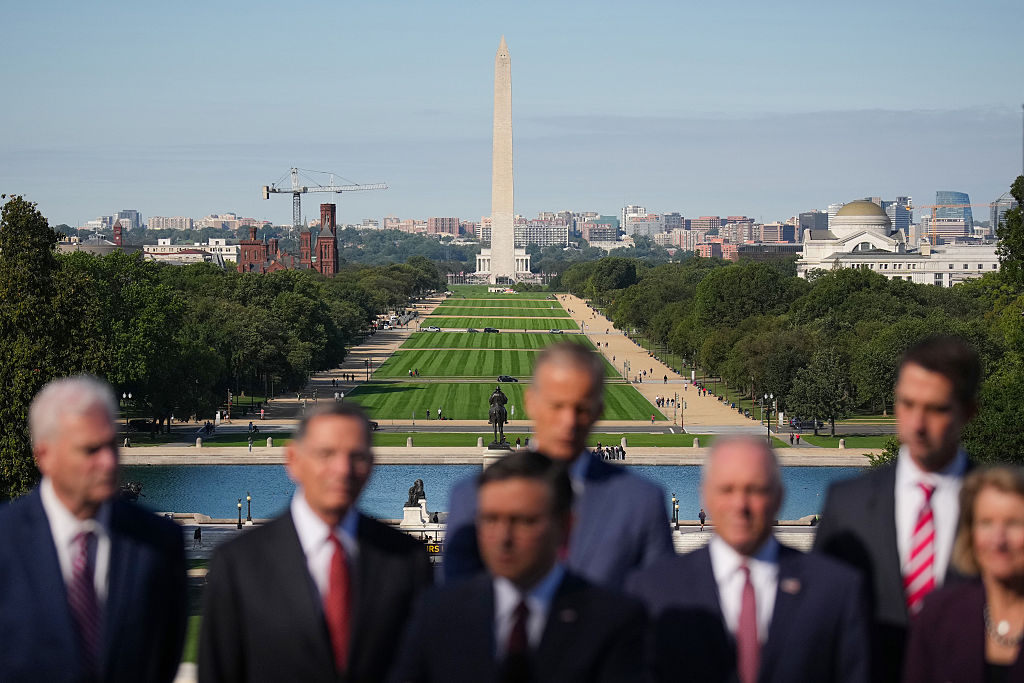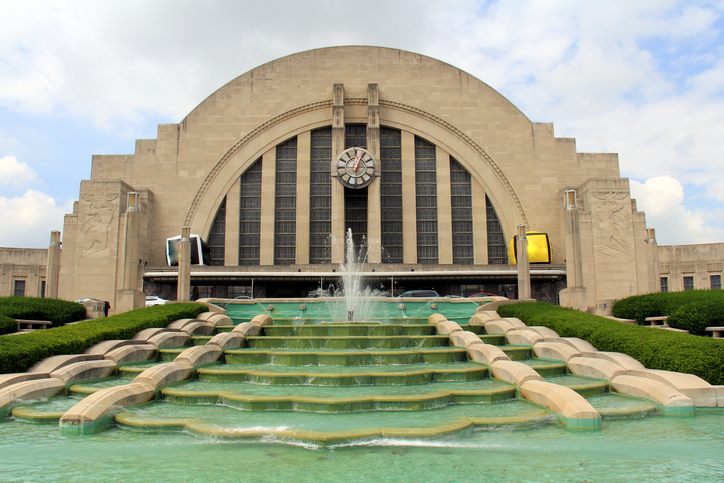What Does A Government Shutdown Mean For Black People?

For the first time in six years, the federal government has officially shut down after Congress failed to pass a funding bill for fiscal year 2026. It’s unclear how long the shutdown will last, but we’ve seen this tense moment before. The most recent government shutdown lasted from Dec. 22, 2018, to Jan. 25, 2019 (35 days under the Trump administration), making it the longest in U.S. history. Here’s everything we know about the current shutdown and what could happen for Black Americans if both sides don’t reach an agreement soon.
What is a Government Shutdown?
A government shutdown means federal agencies must cease all “nonessential” operations until Congress approves a funding package. As we’ve previously reported, now that the Sept. 30 deadline has passed, the U.S. government has officially begun its new fiscal year, which means funding for all government operations from the previous year has expired.
These shutdowns can impact millions, especially Black people, who are disproportionately affected by disruptions to programs like SNAP, delayed federal worker paychecks, and stalled HBCU funding. Sadly, almost immediately after the deadline passed, Republicans and Democrats began pointing fingers.
Republicans argue that Democrats simply need to agree to extend current funding for another seven weeks, but that proposal has been met with aversion. Democrats are pushing for the funding bill to include an extension of enhanced Affordable Care Act premium subsidies and to reverse recent changes to Medicaid made earlier this year as part of Trump’s tax overhaul, according to CNN and 19thNews.
Healthcare premiums could spike if no agreement is made.
A central sticking point in the shutdown debate is the looming expiration of enhanced Affordable Care Act subsidies, which helped millions of Black Americans afford health coverage by lowering premiums and lifting income limits. Without renewal, premiums could spike by over 75%. Democrats are also pushing to undo recent Medicaid cuts tied to Trump’s tax and immigration bill that favored corporations and wealthy earners.
Instead of resolving the issue, both parties have been engaging in a blame game. The Trump administration quickly blamed the left, stating on the White House website in bold font, “Democrats have shut down the government.” Senate Minority Leader Chuck Schumer, D-N.Y., remained firm, stating that any funding bill must address the Affordable Care Act subsidies set to expire by year’s end. When asked by NBC News if Democrats would “go crawling back” if the shutdown dragged on, Schumer responded with a firm, “No.”
Rep. Jasmine Crockett of Texas echoed his stance: “This is THEIR shutdown.” She added, Republicans “had every tool to govern and chose chaos instead. The American people are the ones paying the price.”
SNAP, social security, and food assistance are at risk of delays.
Although SNAP benefits aren’t expected to be disrupted immediately, the U.S. Department of Agriculture warned that such programs will only continue “subject to the availability of funding.” If the shutdown continues, millions—including more than 11 million adults aged 50 and older—could face delays in receiving food aid.
The National Grocers Association (NGA) also raised alarms on the White House Website, stating, “ A lapse in funding will seriously jeopardize critical programs that grocers and their customers rely on – including SNAP and WIC – which will have limited funding and threaten food access for millions of low-income Americans should a shutdown occur.”
The NGA is also urging Congress to extend a prohibition on EBT processing fees, set to expire on Oct. 1. If not extended, grocers could face millions in new costs, potentially passing those increases on to low-income shoppers. Social Security and Medicare checks will still be issued, but services such as benefit verification and new card issuance will be temporarily suspended during this period, according to the Committee for a Responsible Federal Budget.
It could impact Black federal workers and HBCUs.
This shutdown threatens to hit the Black community hardest. From unpaid federal workers to stalled HBCU infrastructure projects, the effects could be long-lasting. Earlier this year, the Department of Education proposed $20.15 million in subsidies for new loans through the HBCU Capital Financing Program. This initiative offers low-cost capital to help HBCUs finance critical renovations and construction. The 2026 bond limit proposal was raised to $500 million—an increase of nearly $123 million from 2024—but it now hangs in limbo due to the shutdown.
If the standoff continues, Black federal workers also face a heightened risk of furlough or layoffs. On Sept. 28, President Trump warned of sweeping and “irreversible” cuts if a government shutdown went into effect on Oct. 1.
“There is a possibility, yeah,” he said of a potential shutdown during an interview with NBC News on Sunday. “And if there is, we are going to cut a lot of the people that … we’re able to cut on a permanent basis, and we will be doing that. I’d rather not do that.”
To put things into perspective, during the 2013 shutdown, 850,000 employees were furloughed, according to the Committee for a Responsible Federal Budget.
This new shutdown compounds damage already done by the Department of Government Efficiency’s “workforce optimization initiative,” signed by Trump in February. That initiative led to buyouts and layoffs affecting around 75,000 federal workers, many of whom were probationary or long-serving staff with limited appeal options.
Major agencies, such as the Department of Education and the Department of Health and Human Services, have experienced significant staffing cuts, including the layoff of 1,300 new hires. These cuts have reduced the federal government’s ability to deliver essential services, especially those relied on by millions of Black people.
The aviation industry sounds the alarm on travel delays.
Airlines for America, writing on the White House website, urged immediate action as they fear travel delays could occur due to the shutdown. Without government funding, Black federal TSA, FAA, and CBP employees could face a delay in pay or be furloughed.
“Travelers, the shipping public, and the dedicated federal employees who protect and maintain our nation’s aviation system deserve continuity,” the agency penned.
The shutdown arrived just after Congress approved $12.5 billion to modernize the FAA’s outdated air traffic system. Without funding, those improvements are on hold, and pay delays for TSA, FAA, and CBP employees loom.
“When federal employees who manage air traffic, inspect aircraft, and secure our nation’s aviation system are furloughed or working without pay, the entire industry and millions of Americans feel the strain,” the association stated.
What happens next?
NBC News reported that the Senate is scheduled to vote again at 11 a.m. today on procedural motions tied to two stopgap funding bills that failed yesterday. These votes are intended to initiate formal consideration of the measures, but both are expected to fail again, making it likely that no final decision will be made today.
To advance the House-passed, clean continuing resolution, Republicans would need support from at least eight Democrats, assuming GOP votes remain unchanged. In last night’s vote, only three members of the Democratic Caucus sided with Republicans: Sens. John Fetterman (D-Pa.), Catherine Cortez Masto (D-Nev.), and Angus King (I-Maine). Sen. Rand Paul (R-Ky.) was the only Republican to vote against the bill.
The Senate is expected to adjourn this afternoon and will not be in session tomorrow in observance of Yom Kippur.
SEE MORE:
Lawmakers Meet Ahead Of Pending Government Shutdown
Elon Musk Using Xitter To Force Government Shutdown
What Does A Government Shutdown Mean For Black People? was originally published on newsone.com











